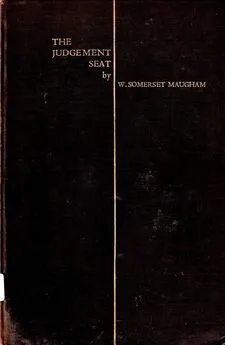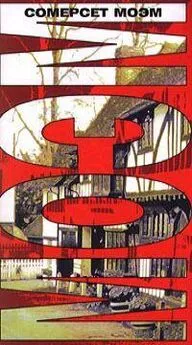Уильям Моэм - Английский язык с У. С. Моэмом. На окраине империи. Рассказы
- Название:Английский язык с У. С. Моэмом. На окраине империи. Рассказы
- Автор:
- Жанр:
- Издательство:неизвестно
- Год:неизвестен
- ISBN:нет данных
- Рейтинг:
- Избранное:Добавить в избранное
-
Отзывы:
-
Ваша оценка:
Уильям Моэм - Английский язык с У. С. Моэмом. На окраине империи. Рассказы краткое содержание
Метод чтения Ильи Франка
Английский язык с У. С. Моэмом. На окраине империи. Рассказы - читать онлайн бесплатно полную версию (весь текст целиком)
Интервал:
Закладка:
"Good-morning, Bateman."
"How did you recognize my voice (как ты узнала мой голос)?"
"It is not so long since I heard it last (я не очень: «так» давно слышала его в последний раз). Besides, I was expecting you (кроме того, я ждала тебя)."
"When may I see you (когда я могу тебя увидеть)?"
chateau ['SxtqV], gaily ['geIlI], voice [vOIs]
They passed out of the crowded streets in the Loop and drove along the lake till they came to the imposing house, an exact copy of a chвteau on the Loire, which Mr. Hunter had built himself some years before. As soon as Bateman was alone in his room he asked for a number on the telephone. His heart leaped when he heard the voice that answered him.
"Good-morning, Isabel," he said gaily.
"Good-morning, Bateman."
"How did you recognize my voice?"
"It is not so long since I heard it last. Besides, I was expecting you."
"When may I see you?"
"Unless you have anything better to do (если тебе нечем /другим/ заняться) perhaps you'll dine with us to-night (может, ты пообедаешь сегодня с нами)."
"You know very well that I couldn't possibly have anything better to do (ты же очень хорошо знаешь, что я не мог бы найти ничего другого: «лучшего», чем бы заняться)."
"I suppose that you're full of news (полагаю, что тебе есть что рассказать: «ты переполнен новостями»)?"
He thought he detected in her voice a note of apprehension (ему показалось, что он уловил в ее голосе нотки предчувствия; to detect— открывать, находить; замечать, обнаруживать ).
"Yes," he answered.
"Well, you must tell me to-night (что ж, ты мне должен /все/ рассказать сегодня вечером). Good-bye."
She rang off (она положила трубку; to ring— звонить ). It was characteristic of her that she should be able to wait so many unnecessary hours (это было так ей свойственно — она была способна ждать столь много ненужных часов) to know what so immensely concerned her (чтобы узнать то, что в такой огромной степени беспокоило ее; to concern— касаться /в рассказе/; волновать, заботить ). To Bateman there was an admirable fortitude in her restraint (Бейтман видел в ее сдержанности восхитительную силу духа).
perhaps [pq'hxps], apprehension ["xprI'henS(q)n], characteristic ["kxrIktq'rIstIk], fortitude ['fO: tItju: d], restraint [rI'streInt]
"Unless you have anything better to do perhaps you'll dine with us to-night."
"You know very well that I couldn't possibly have anything better to do."
"I suppose that you're full of news?"
He thought he detected in her voice a note of apprehension.
"Yes," he answered.
"Well, you must tell me to-night. Good-bye."
She rang off. It was characteristic of her that she should be able to wait so many unnecessary hours to know what so immensely concerned her. To Bateman there was an admirable fortitude in her restraint.
At dinner, at which beside himself and Isabel no one was present but her father and mother (за обедом, на котором кроме него самого и Изабеллы присутствовали только ее родители: «не присутствовал никто, кроме ее отца и матери), he watched her guide the conversation into the channels of an urbane small talk (он наблюдал, как она направляет разговор в русло вежливой светской беседы; to guide — быть проводником; направлять; channel — канал ), and it occurred to him that in just such a manner (и ему пришло в голову, что именно в такой манере; to occur — случаться, происходить; приходить на ум, в голову ) would a marquise under the shadow of the guillotine toy with the affairs of a day that would know no morrow (какая-нибудь маркиза под тенью гильотины = зная о грядущей гильотине , легко занималась бы делами дня, у которого не будет продолжения: «завтра»; shadow — тень/от предмета/;призрак;to toy — вертеть в руках; играть, дурачиться ).
guide [gaId], channel [tSxnl], urbane [W'beIn], marquise [mQ:'ki: z], guillotine ['gIlqti: n]
At dinner, at which beside himself and Isabel no one was present but her father and mother, he watched her guide the conversation into the channels of an urbane small talk, and it occurred to him that in just such a manner would a marquise under the shadow of the guillotine toy with the affairs of a day that would know no morrow.
Her delicate features, the aristocratic shortness of her upper lip (ее изящные черты, аристократически короткая верхняя губа), and her wealth of fair hair suggested the marquise again (и роскошные белокурые волосы снова навели на мысль о маркизе; wealth — богатство; обилие, множество; to suggest — предлагать, советовать; вызывать/ассоциацию и т. п./ ), and it must have been obvious (это должно было быть явным), even if it were not notorious (хотя и не было общеизвестно), that in her veins flowed the best blood in Chicago (что в ее венах текла лучшая кровь в Чикаго). The dining-room was a fitting frame to her fragile beauty (столовая /в доме/ была подходящим обрамлением ее хрупкой красоте; frame — каркас; рама ), for Isabel had caused the house, a replica of a palace on the Grand Canal at Venice to be furnished by an English expert in the style of Louis XV (так как по пожеланию Изабеллы, дом, который был точной копией дворца на Гранд Канале в Венеции, был меблирован английским специалистом в стиле Людовика XV; to cause — быть причиной; заставлять, побуждать ); and the graceful decoration linked with the name of that amorous monarch, enhanced her loveliness (изящное убранство /комнат/, связанное с именем этого любвеобильного монарха, усиливало ее очарование; amorous — влюбчивый ) and at the same time acquired from it a more profound significance (и, в тоже самое время, получало от него более глубокий смысл).
delicate ['delIkIt], aristocratic["xrIstq'krxtIk], notorious [nq(u)'tO: rIqs], fragile ['frxdZaIl], replica ['replIkq], amorous ['xm(q)rqs], significance [sIg'nIfIkqns]
Her delicate features, the aristocratic shortness of her upper lip, and her wealth of fair hair suggested the marquise again, and it must have been obvious, even if it were not notorious, that in her veins flowed the best blood in Chicago. The dining-room was a fitting frame to her fragile beauty, for Isabel had caused the house, a replica of a palace on the Grand Canal at Venice, to be furnished by an English expert in the style of Louis XV; and the graceful decoration linked with the name of that amorous monarch enhanced her loveliness and at the same time acquired from it a more profound significance.
For Isabel's mind was richly stored (так как ум Изабеллы был богато наполнен = Изабелла обладала широкой эрудицией; richly — богато; полностью, с избытком; to store — снабжать, наполнять ), and her conversation, however light, was never flippant (ее разговор, каким бы несущественным он ни был, вовсе не был легкомысленным; light — легкий; несерьезный, незначительный ). She spoke now of the Musicale to which she and her mother had been in the afternoon (сейчас она говорила о музыкальном вечере, который она с матерью посетила днем), of the lectures which an English poet was giving at the Auditorium (о лекциях, которые читал в Лектории один английский поэт), of the political situation (о политической ситуации), and of the Old Master which her father had recently bought for fifty thousand dollars in New York (и о полотне /одного из/ старых мастеров, которое ее отец недавно купил за пятьдесят тысяч долларов в Нью-Йорке; the Old Master — один из великих художников периода XV–XVIII вв.;картина такого художника; to buy ). It comforted Bateman to hear her (Бейтман успокаивался, слушая ее). He felt that he was once more in the civilized world (он почувствовал, что снова находится в цивилизованном мире), at the center of culture and distinction (в центре культуры и благородства; distinction — различение; знатность ); and certain voices, troubling and yet against his will refusing to still their clamour, were at last silent in his heart (и некие тревожащие голоса, которые против его воли отказывались смолкнуть: «заставить замолчать свои шумные протесты», наконец-то замолчали в его душе; clamour — шум, крик; шумные протесты; возмущение, ропот ).
musicale ["mju: zI'kxl], auditorium ["O: dI'tO: rIqm], civilized ['sIv(q)laIzd], clamour ['klxmq]
For Isabel's mind was richly stored, and her conversation, however light, was never flippant. She spoke now of the Musicale to which she and her mother had been in the afternoon, of the lectures which an English poet was giving at the Auditorium, of the political situation, and of the Old Master which her father had recently bought for fifty thousand dollars in New York. It comforted Bateman to hear her. He felt that he was once more in the civilized world, at the center of culture and distinction; and certain voices, troubling and yet against his will refusing to still their clamour, were at last silent in his heart.
"Gee, but it's good to be back in Chicago (Боже, здорово снова вернуться в Чикаго)," he said.
At last dinner was over (наконец обед подошел к концу: «закончился»), and when they went out of the dining-room Isabel said to her mother (и, когда они вышли из столовой, Изабелла сказала матери):
Читать дальшеИнтервал:
Закладка:

![Уильям Моэм - Сумка с книгами [Рассказы]](/books/1081361/uilyam-moem-sumka-s-knigami-rasskazy.webp)

